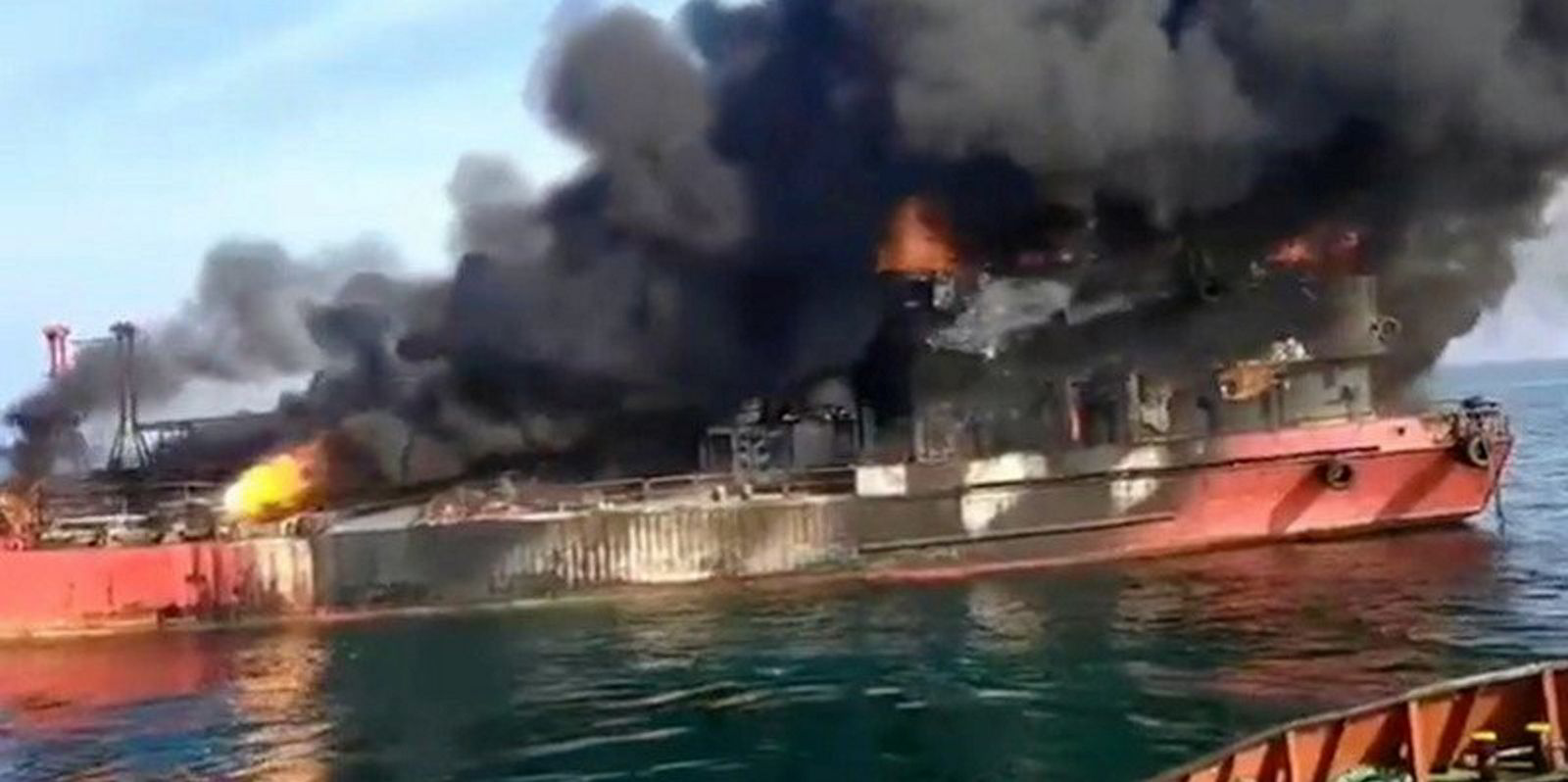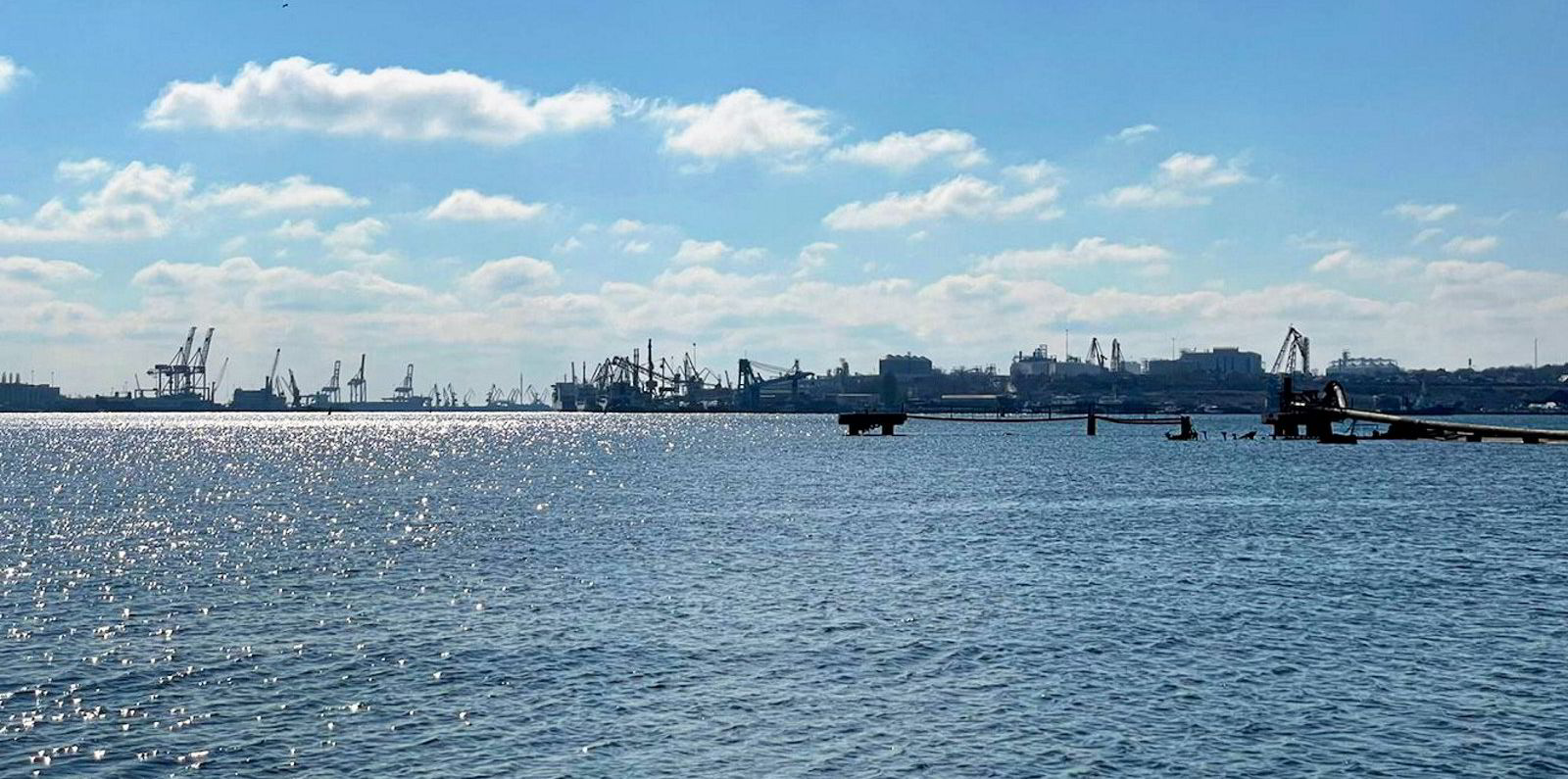The prospect of leaving his home port of Odesa on a bulker through the mined waters of the Black Sea holds few fears for Viktor Komarov.
War is already uncomfortably close for the experienced chief engineer, who heard a Russian missile fly past his home at the weekend before it exploded 30 seconds later.
The 65-year-old is currently without a job but is a rare example of an experienced Ukrainian seafarer who is available for work. Under martial law, all men aged 18 to 60 must remain in the country.
“If I have any opportunity to join a ship, I will take it,” Komarov said. “The economy is down, and many people find it difficult to get a job right now.”
He would consider joining one of the dozens of ships seeking to leave the country’s ports after being stranded by the Russian blockade. He shrugs off the risks. “Tankers are also dangerous,” he said.
Ukraine and Russia signed a deal on Friday to restart grain exports from three of its Black Sea ports to ease the global food crisis.
Ukraine has 20m tonnes of stored grain that needs to be exported to clear space for the new harvest, but the trades have been thrown into doubt by new Russian missile attacks in the Odesa region.
Crew manager Danica Maritime warned that it would be hard to clear the backlog and secure the release of more than 40 foreign-flag vessels at Ukrainian ports without local seafarers to crew the ships.

In theory, it should provide opportunities for seafarers like Komarov. But InterManager, which represents the ship-management industry, said there have been few takers for its hastily assembled roster of 18 Ukrainian seamen aged over 60.
“We thought we would have a crisis situation — we don’t,” said secretary general Kuba Szymanski.
“InterManager was able to get hold of senior Ukrainian seafarers aged 60-plus, and they are still unemployed.
“The reality check is I don’t think we have a problem with Ukrainian seafarers.”
Oleg Grygoriuk, chairman of the Marine Transport Workers’ Trade Union of Ukraine, said there is a demand for older seafarers because of the restrictions.
His father, 67, a former chief engineer, has been contacted several times for work, but has not worked for five years and turned down the opportunities.
Senior seafarers
“The work has really intensified in the last decade, so it’s difficult for the seniors,” said Grygoriuk. “But I know that some of them have gone to sea, especially those ones who are 61 or so.”
Grygoriuk’s union has been pressing the government since March to agree on a waiver for Ukrainian seafarers aged 18-60 to be allowed to leave the country for work.
The government has so far refused, fearing the political impact of allowing just one sector to go abroad.
He said seafarers had left anyway, with an estimated 5,000 to 6,000 still stuck in the country who want to work.
Bimco suggests that Ukraine contributes 76,000 seafarers to the global fleet.
Worldwide, some 4% of officers are aged 61 and above, and just 1% of ratings, according to the Seafarer Workforce Report 2021 compiled by Bimco and the International Chamber of Shipping.
Komarov left his last ship at the port of Corpus Christi, Texas, in June last year and headed back to Ukraine.
His return to sea was postponed after his wife became seriously ill with Covid-19. Russia’s invasion in February further delayed a return to sea, as he wanted to remain in Ukraine to look after his family, including his 87-year-old mother and his two grandchildren.
Viber Watch
He now wants to return to work, with life relatively “normalised” during the war, and is living in Odesa waiting for work and keeping track of opportunities on the Viber social media network.
Komarov said he received a message this week from a friend who left for Georgia with his family a few days after the Russian invasion.
“He’s now with another company — and they have plenty of 60, 65, 66 and 67-year-old seafarers on board now.”





